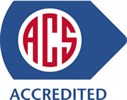Students learn to drive business innovation as an ICT professional.
They learn every phase of the development and architecture of software systems, from initial planning and design through to actual programming, team management and associated business issues. Tasks include constructing networks, creating software packages, creation, management and deployment of databases and networking, telecommunications and integration of diverse systems in business contexts. Internships with information technology companies offer structured industry experience.
- Only a full-time option is available to international students on a Student visa. Online programs are not available to Student visa holders.
- * Estimated tuition fees are based on 2025 rates. Refer to international fees for more information.
- Not all majors/minors and elective options are available at every campus. You should refer to the What Can I Study tab, and the proposed study sequence for your chosen campus and intake for further information.
- * Campus note: In addition to being able to study all courses at Sippy Downs, students may choose to complete some core and foundation business subjects at the Noosa Centre or Gympie campus. There may be a limited selection of subjects available at South Bank. The option to study at Noosa or Gympie is not available to international students on a Student visa.
- * Campus note: In addition to being able to study all courses at Sippy Downs, students may choose to complete some core and foundation business subjects at the Noosa Centre or Gympie campus. There may be a limited selection of subjects available at South Bank. The option to study at Noosa or Gympie is not available to international students on a Student visa.
They learn every phase of the development and architecture of software systems, from initial planning and design through to actual programming, team management and associated business issues. Tasks include constructing networks, creating software packages, creation, management and deployment of databases and networking, telecommunications and integration of diverse systems in business contexts. Internships with information technology companies offer structured industry experience.
Career opportunities
Business systems analysis, information and communication technology support, network engineering, systems architecture / integration, database programming, web programming.
 Membership
Membership
Australian Computer Society.
Accreditation
This program is fully accredited (Professional) with the Australian Computer Society.
Program structure
Program requirements
In order to graduate you must:
- Complete 1 core course.
- Complete 5 required introductory (100 level) courses.
- Complete 11 required advanced (200/300 level) courses.
- Complete 7 elective courses, 3 must be advanced (200/300 level) courses.
- Complete no more than 10 introductory level courses, including core courses.
- Complete no more than 6 courses from the School of Communication, School of Social Sciences or Faculty of Science, Health, Education and Engineering.
- Register any selected Majors or Minors with Student Administration.
Program notes
- Completing this program within the specified (full-time) duration is based on studying 48 unit points per semester (normally 4 courses).
- Courses within this program are assessed using a variety of assessment methods including essays, seminar presentations, reports, in-class tests and examinations. Not all courses will necessarily include all methods.
- As part of your USC program, you may apply to participate in the Global Opportunities (GO) Program to undertake courses with an overseas higher education provider. It is advisable to contact your Program Advisor to discuss timing and course issues.
- Only a full-time study option is available to international students on a Student Visa.
- When enrolling, refer to the Study Plan.
Program structure
Core course (1)
COR109 Physical Chemistry
Introductory courses (5)
BUS101 Environmental Chemistry
BUS102 Communication and Thought
BUS104 Business Analytics
BUS106 Introduction to Economics
BUS108 Management and Organisational Behaviour
Advanced courses (11)
BUS203 Accounting for Business
ICT211 Introduction to Informatics
ICT220 Business Law and Ethics
ICT221 Database Design
ICT301 Telecommunications and Networks
ICT310 Software Development 1
ICT311 Advanced Network Topics, Management and Security
ICT320 Systems Analysis and Design
ICT321 Software Development 2
ICT351 Database Programming
ICT352 Architecture and Systems Integration
Elective courses (7)
Select 7 elective courses, 3 must be advanced (200/300 level) courses.
Up to 6 electives may be from either faculty (Arts and Business or Science, Health, Education and Engineering).
These electives may include the following from the School of Business:
- Industry Studies
- Internship
- ICT Industry Project
TOTAL UNITS 288
